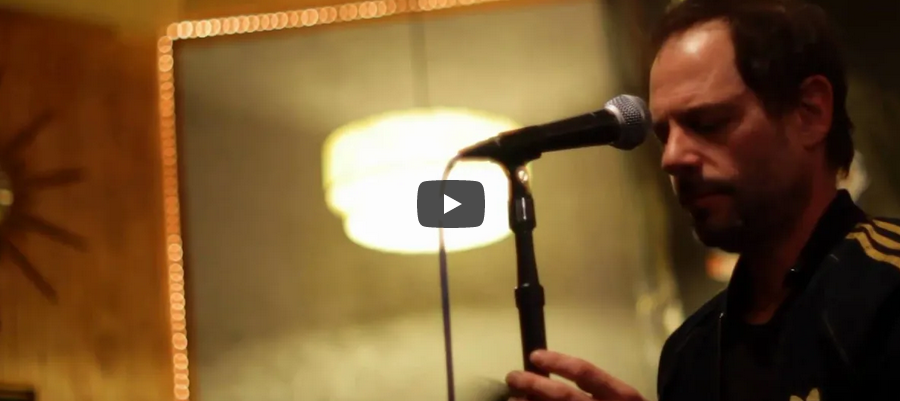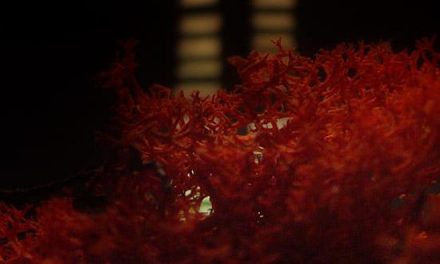The 1992 alternative music charts were filled with excitement as Nirvana, Pearl Jam, The Cure, and Alice in Chains dominated the airwaves alongside immortal pop hits like “I’m Too Sexy” by Right Said Fred. Recently, I discovered an acoustic version of another popular song from that year, “Hey Jealousy” by the Gin Blossoms. The new tone and treatment of the old track struck a chord with me, in much the same way that the acoustic version of A-Ha’s “Take on Me” did, completely changing my relationship to the lyrics and the artist.
Penned by Doug Hopkins—the band’s lead guitarist and songwriter—it concerns someone trying to find solace in an old flame’s arms, reminiscing on the past, and apologizing for failures both past and present. It suggests they’re near the end of their rope, and feebly trying to reconnect to a good time in their life in the hope that some of that old magic will come back. Pretty powerful stuff for a pop song, similar to how Gary Jules’ cover of Tears for Fears’ “Mad World” truly highlighted the angst and pain hiding behind the upbeat chords and snappy delivery of the original.
“Hey Jealousy” manages to cram quite a bit of imagery in its two verses and chorus, amplified here by an older and less upbeat Robin Wilson, the band’s lead singer. Artists often include their own demons and troubles in their work, and this was no exception. Doug was inspired by his own failed relationship with an ex-girlfriend, which by his own admission he ruined by his drinking and cheating.
Unfortunately his demons didn’t improve and he was eventually kicked out of the Gin Blossoms for severe alcoholism and untreated depression—he took his own life several months later. I can only imagine how those events shaped the band’s relationship with this song and others penned by Doug, including “Found Out About You” and “Lost Horizons”.
Verse one opens with a coy plea for help, immediately segueing into re-treading old feelings and apologies. It feels mealy, wormy, and intentionally manipulative. I’ve seen people pry their way (back) into others’ lives with this kind of tactic, and it immediately makes me distrust, disbelieve, and think less of the speaker.
Well, tell me, do you think it’d be all right
If I could just crash here tonight?
You can see I’m in no shape for driving
And anyway, I’ve got no place to go.
And you know, it might not be that bad;
You were the best I’d ever had.
If I hadn’t blown the whole thing years ago,
I might not be alone
This verse is repeated again later in the song, reinforcing the speaker’s (self-inflicted) condition, but presenting the lyrics a second time suggests that this conversation, this self-abasing begging, has happened before. I can’t help but imagine someone in the depths of severe alcoholism, pounding on an old flame’s door long after the bars have closed, the words spilling out of their mouth almost by rote rather than with any sense that they’re actually willing to change. It’s a sad picture, it’s a terrible place to be, and it really feels like this person truly believes they have nowhere else to turn.
In the second verse the speaker starts in on promises—ones that I gather have been made time and time before—before immediately diving into more depressive admissions that could serve as further attempts at manipulation; if they are taken back and it doesn’t work out, well their partner’s expectations should have been lower, making it their fault rather than the speaker. Then we come back around and—like the first verse—it becomes all about the speaker again and what they want, how they want to feel. The final two lines, copied from the first verse, reinforce the self-loathing and tired anger the speaker feels.
You can trust me not to think,
And not to sleep around.
And if you don’t expect too much from me
You might not be let down.
‘Cause all I really want is to be with you,
Feeling like I matter too.
If I hadn’t blown the whole thing years ago
I might be here with you
Robin Wilson, the Gin Blossom’s lead singer, actually replaced one important word in the second verse before recording the studio version: in the original notes the line was “You can trust me not to drink,” making the song even more self-referential by writer Doug Wilson. Robin felt that too many of their songs referenced drinking, and that maybe not every track needed to make it so overt—after all, the band’s very name was a reference to over-consumption.
Taking the lyrics as they stand, however, I feel the first line still clearly works. The speaker admits they themselves screwed up—more than by just sleeping around—and jealousy can a powerful force of emotional turmoil in any relationship ((one of these days I really need to sit down and write up my feelings on the difference between “jealousy” and “envy”)), particularly when fueled by addiction. In the past they’ve been lost in their own head, either making accusations they themselves were guilty of or otherwise feeling abandoned when their partner finally walked away. Promising not to think—even as flip or ill-fated a promise as it is—could be an offer to let the past be the past, and to try and move beyond what held them back the last time they tried to make it work.
The chorus is simple, hopeful, and contains more promises that things will be different.
Tomorrow we can drive around this town,
And let the cops chase us around.
The past is gone, but something might be found
To take its place.
Hey jealousy.
More offers of what the reunited couple could spend time doing—raising hell and getting into trouble, perhaps like they used to—and still without any indication that the ex-partner has even acknowledged their presence, their pleas, or their previous offers. This tactic is also common among people who wheedle and manipulate others into getting what they want: if one avenue doesn’t work, wear the target down through sheer persistence. On the heels of suggesting they can go right back to how things were there’s the promise that the future can be different, that they can make a life together.
Whether the speaker recognizes them as such or not, everything they’ve said is a lie—everything save that they themself were the one who ruined the relationship, and ultimately their own life.
We are left with a subject who is—yet again—heavily inebriated, trying to vainly reinsert themself into an old flame’s life, regardless of the potential damage or disruption they cause. They make empty promises and cajoling offers, tinged with just enough self-deprecation to sound genuine and suggest a change of behavior, which is immediately undone by the state of the speaker in the first place.
Why then, “Hey Jealousy” for the title and repeated in the chorus?
I think there are a lot of things the speaker is jealous of, and these could reference any one or all of them: the life they could have lived had they stayed with their partner, the feeling of validation and safety they experienced when they were together, the (false) freedom to act and behave how they wished without concerning themselves of the consequences, or perhaps of the life their ex-partner has now that they aren’t a part of it any more.
There’s a lot of anger and frustration to be felt when life doesn’t work out like we think it “should”, and those who find comfort, solace, or validation in controlling others—or dragging them down too—can lash out when they’re reminded of the bridges they’ve burned and the fact that they no longer hold that power over the ones they used to. They’re jealous of the life they don’t have, the control they don’t have, and the stability they sorely lack when they’ve pushed everyone else away.
In the end, the only thing they have is their jealousy, that too-familiar and hated companion.
“Hey, Jealousy.”
Hey Jealousy – Acoustic

Header image by Geralt on Pixabay.com, a fantastic resource for stock images














